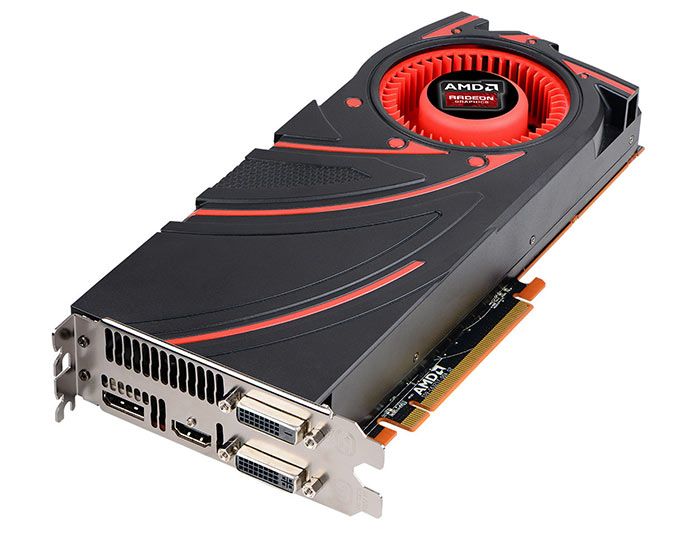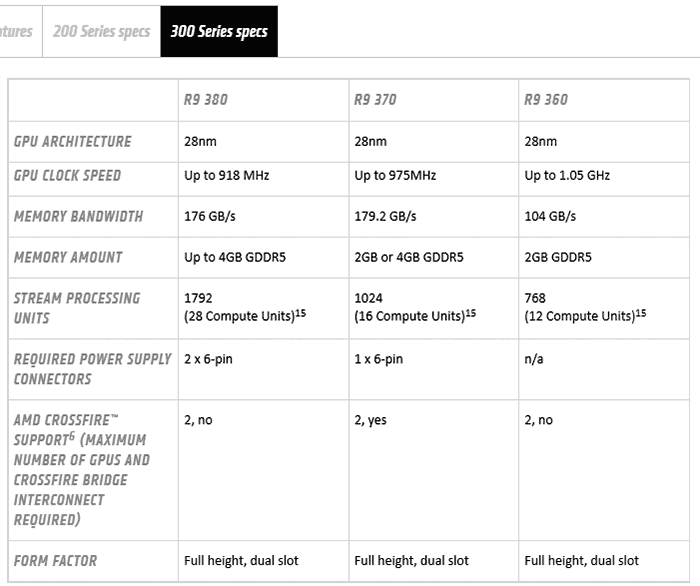AMD has published the official specifications of its Radeon R9 300 series graphics cards, destined for OEM use. On its OEM graphics card pages it lists detailed specs for the AMD Radeon R9 380, R9 370 and R9 360 OEM graphics cards. All these cards appear to be rebranded products which are based upon Tonga, Pitcairn and Bonaire GPUs respectively with slight clock speed tweaks.

The AMD Radeon 300 Series Graphics for OEM desktops got a brief mention in an official press release yesterday about updated APUs and GPUs. However that news release didn't give any specifications for the GPU range it touched upon. HP will be one of the first OEMs to use the new R9 300 series graphics cards in its PCs. We found that out earlier in the week, however at that time no tech specs at all could be garnered from the HP product pages.
Looking at what the AMD Radeon R9 380, R9 370 and R9 360 OEM are in hardware terms it appears that:
- The AMD Radeon R9 380 is based on the current retail Radeon R9 285 card
- The AMD Radeon R9 370 is based on the current retail Radeon R7 265 card with a little more GPU clock speed applied
- The AMD Radeon R9 360 is based on the current Radeon R9 260 OEM card
The above AMD Radeon R9 300 series cards are said overall to represent "AMD's commitment to provide the smoothest, high-quality graphics solutions for everyday desktop users".

In this OEM lineup, as revealed so far, there is no mention of an AMD Radeon R9 390 graphics card. You can see all the new cards listed above feature GDDR5 memory. While there is no rebrand of Hawaii-based Radeon R9 290/290x, that isn't expected to become the (OEM) AMD Radeon R9 390. It could be rebranded to become something like the R9 385… We are expecting a completely new architecture for the AMD Radeon R9 390 featuring HBM on board.













